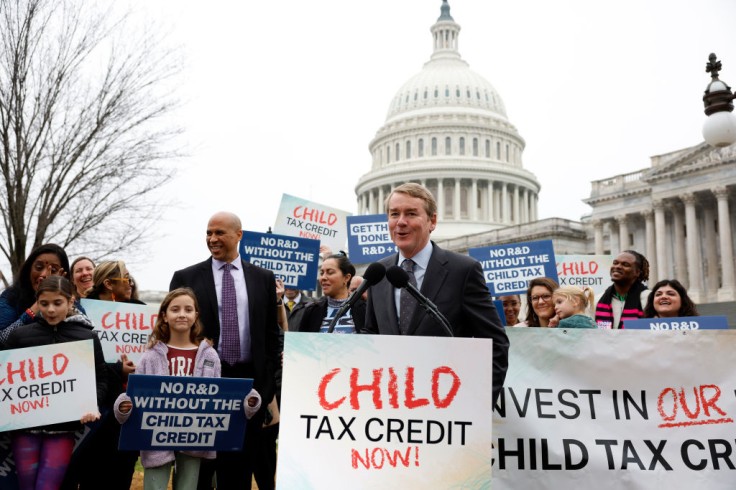
A newly proposed congressional tax plan expands benefits in child tax credit and business deductions. These proposed changes aim to increase child tax credit benefits in hopes of benefiting families and curbing child poverty in the upcoming years.
The Congress aims to approve the proposed changes that will affect businesses and families before the start of the next tax season on January 29. However, the proposed legislation is also facing challenges in approval and implementation as numerous important laws are also tackled by Congress.
Increase in Child Tax Credit Benefits for Families
The House Ways and Means Committee Chairman Jason Smith, R-Mo., and Senate Finance Committee Chairman Ron Wyden, D-Ore, stated that the newly proposed congressional tax plan includes increasing the child tax credit by broadening access, incorporating inflation adjustments in the future, and expanding the refundable tax credit.
In a statement, Wyden said that his goal is to get the legislation passed for businesses and families to immediately benefit in the next tax filing season and pledged that he will do his best to move the changes forward to get it done.
The proposed tax credit may not be as generous as the previous COVID-19 child tax benefits during the pandemic, but this will increase the maximum refundable tax break to $1,800 per child instead of the current limit of $1,600 in 2023.
Aside from that, the benefits will also increase in the following years. It will become $1,900 in the 2024 tax year and $2,000 for the 2025 tax year, with inflation adjustments in between. The proposed change also benefits America's large families, making them eligible for an expanded refundable credit.
Another feature that makes this tax change more tailored to a family is that because it accounts for income loss or drops for 2024 or 2025, the taxpayer will be able to use their earnings from the previous year to calculate their maximum credit.
After the generous pandemic relief at the height of COVID-19, childhood poverty in America more than doubled in 2022, surging to 12.4% compared to 5.2% in 2021.
The increase in child tax credit benefits is projected to benefit 16 million children in low-income families for the first year, according to the Center on Budget and Policy Priorities.
Ailen Arreaza, who leads ParentsTogether Action, a significant family advocacy organization representing over three million parents across the country, expressed in a statement that numerous parents are struggling more than ever. This is due to the obvious reasons for increases in the prices of child care, food prices, and the resumption of student loan payments.
She emphasized the importance of prioritizing those families who frequently fall short of the income criteria for the full child tax credit.
Arreaza noted that the proposed agreement is a vital initial step in this direction, aiming to extend the Child Tax Credit to include families with the lowest incomes. She highlighted that the enactment of this bill has the potential to elevate approximately 400,000 children above the poverty line.
Read Also: House Lawmakers Advance $78 Billion Bipartisan Tax Package with Temporary Child Tax Credit Changes
Benefits of the Newly Proposed Congressional Tax Plan
Aside from the expanded child tax credit, it also includes legislation that will benefit businesses and low-income housing.
Businesses will be given the privilege to deduct the cost of their U.S.-based R&D investments immediately from 2022 through 2025 instead of waiting for five years to deduct them.
Full or immediate deductions for many capital expenses will be expected, as well as more interest deductions and the restoration of expired business tax breaks. Furthermore, this will also benefit Americans who have been immensely affected by natural, catastrophic disasters by making available extended tax breaks.
However, there is a lot of urgency to pass the legislation before the beginning of tax season on January 29, because there are planned amendments that will be retroactive for the year 2023.
Garrett Watson, a senior policy analyst and modeling manager at the Tax Foundation, stated that even in the best-case scenario, there is not a lot of time left. Despite the fact that there are a limited number of vehicles available to approve the legislation, it may be more difficult to pass a stand-alone bill when there are other priorities.
According to Watson, this end up being pushed to the background or being overshadowed by other laws that needs urgent actions as well. To prevent a partial shutdown of the government, lawmakers are facing two deadlines for passing spending measures during the fiscal year 2024. The first deadline is rapidly coming on January 19, which is expected to be met.